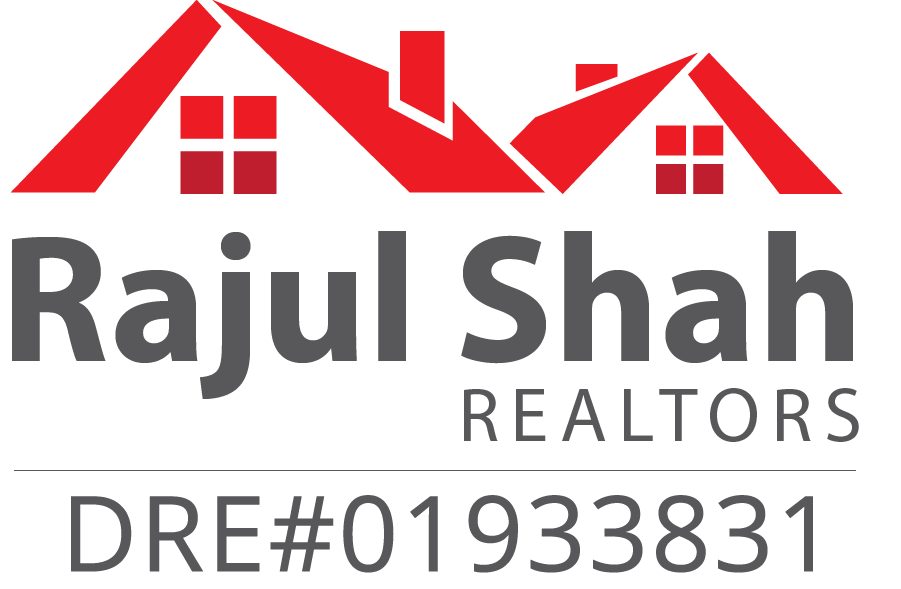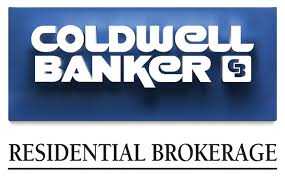
Are you struggling to sell your home in today’s competitive real estate market? Do you find yourself overwhelmed by the countless marketing options available and unsure of where to start? If so, you’re not alone. Selling a home requires a strategic approach that combines both online and offline marketing strategies to reach potential buyers effectively.
In this comprehensive guide, we will delve into the world of home marketing and explore the best strategies to master it. From leveraging the power of online platforms to harnessing the impact of offline tactics, we will provide you with actionable insights backed by reliable industry sources.
So, if you are ready to embark on your home marketing journey, buckle up and get ready to dive into a world of effective marketing strategies that will ensure your home stands out in the competitive market. Let’s begin!
Establishing a Reputable Image
As a home seller, establishing a positive and professional image is crucial to attract potential buyers and make a lasting impression. By focusing on key areas such as staging the property, setting the right price, and creating a strong online presence, you can elevate your home marketing efforts and increase your chances of a successful sale.
Staging the Property
Staging your property involves presenting it in the best possible light to potential buyers. This process includes decluttering, depersonalizing, and arranging furniture and decor to highlight the home’s features and create an inviting atmosphere. By utilizing neutral colors, optimizing lighting, and showcasing functional spaces, you can help buyers envision themselves living in the home.
Furthermore, consider hiring a professional stager who can provide expert advice on maximizing the appeal of your property. Their input can make a significant difference in capturing buyers’ attention and conveying a sense of luxury and comfort.
Setting the Right Price
Determining an appropriate listing price is a critical step in establishing your reputation as a serious and knowledgeable home seller. Conducting a thorough market analysis and considering factors such as location, comparable properties, and current market conditions will help you arrive at a realistic and competitive price.
Avoid overpricing your home, as it may deter potential buyers. Pricing it too low, on the other hand, might create suspicion or give the impression of desperate selling. Striking the right balance is key to attracting serious buyers and generating interest in your property.
Creating a Strong Online Presence
In today’s digitally connected world, a strong online presence is essential for effective home marketing. Utilize various online platforms and channels to showcase your property and reach a wider audience. Here are some practical steps to establish a robust online presence:
1. High-Quality Listing Photos: Capture professional-quality photographs that highlight the key features and unique selling points of your home. Images that are well-lit, properly staged, and showcase the property’s best attributes will make a lasting impression on potential buyers.
2. Engaging Property Descriptions: Craft compelling and accurate descriptions that highlight the most attractive aspects of your home. Use descriptive language, emphasize key features, and mention any recent renovations or upgrades to pique buyer interest.
3. Online Listing Platforms: Take advantage of popular real estate websites and platforms to list your property. Ensure that your listing contains detailed information about the property, including its specifications, amenities, and nearby attractions.
4. Social Media Marketing: Leverage the power of social media platforms, such as Facebook, Instagram, and Twitter, to promote your home. Share high-quality photos, engaging videos, and relevant content that showcases the unique characteristics of your property.
Remember to monitor and respond promptly to inquiries, comments, and feedback received through online channels. Demonstrating professionalism and attentiveness online will further enhance your reputation as a trustworthy and reliable home seller.
By focusing on staging, pricing, and establishing a strong online presence, you lay the foundation for a reputable image as a home seller. These efforts will help attract potential buyers, stand out in the market, and ultimately lead to a successful sale.
Engaging in Local Real Estate Activities
Participating in local real estate activities can have numerous benefits for home sellers. By attending community events, joining local organizations, and networking with other professionals in the industry, sellers can gain valuable exposure, build relationships, and increase their chances of connecting with potential buyers. Here are some key advantages of engaging in these activities:
1. Increased Visibility and Recognition
By actively participating in local real estate activities, sellers can establish themselves as reputable and trustworthy individuals within their community. Attending events gives sellers the opportunity to showcase their expertise and connect with potential buyers who may be seeking assistance or advice. This increased visibility can lead to more referrals and word-of-mouth recommendations, ultimately expanding the seller’s reach and attracting qualified leads.
2. Access to a Targeted Audience
Local real estate activities often attract individuals who are actively involved in the housing market, including potential buyers, real estate agents, and industry professionals. By engaging in these activities, sellers can directly interact with their target audience, making it easier to build connections and generate interest in their property. Networking events and organizations provide a platform to promote listings, share insights, and establish valuable relationships with key players in the industry.
3. Insights into Market Trends and Opportunities
Attending local real estate activities allows sellers to stay informed about the latest market trends, developments, and opportunities in their area. By actively participating, sellers gain valuable industry insights, which can help them make informed decisions when setting prices, staging their property, and developing marketing strategies. This knowledge can give sellers a competitive edge and increase their chances of success in a dynamic and rapidly changing real estate market.
4. Collaboration and Knowledge Sharing
Engaging in local real estate activities provides sellers with networking opportunities and access to industry experts. By connecting with other professionals, sellers can learn from their experiences, share best practices, and gain new perspectives on marketing and selling their property. Collaborating with like-minded individuals can lead to innovative ideas, partnerships, and potential business opportunities that may not have been possible otherwise.
5. Establishing Trust and Credibility
Active involvement in the local real estate community helps sellers establish trust and credibility with potential buyers. By participating in events and organizations, sellers demonstrate their commitment to the community and their dedication to helping buyers find the right property. This involvement also allows sellers to showcase their local market knowledge and expertise, further enhancing their reputation as trusted professionals in the industry.
In conclusion, engaging in local real estate activities is a powerful strategy for home sellers looking to enhance their marketing efforts. By attending community events, joining local organizations, and networking with industry professionals, sellers can increase their visibility, connect with a targeted audience, gain valuable market insights, collaborate with other professionals, and establish trust and credibility. These activities can significantly improve the success of a home sale and ultimately help sellers achieve their goals.
Mastering the Conversion of Leads
Converting leads into potential buyers is a crucial aspect of successful home marketing. To achieve this, it’s essential to employ effective strategies that prioritize prompt follow-ups, personalized communication, and building strong relationships with potential clients. By mastering the conversion of leads, you can increase your chances of closing deals and achieving a successful home sale. Here are some tips and techniques to help you in this process:
Prompt Follow-ups
When it comes to leads, time is of the essence. Promptly responding to inquiries and showing your dedication to potential buyers can leave a lasting impression. Ensure that you have a system in place to receive and manage leads efficiently. Responding promptly demonstrates your commitment and professionalism, and it shows that you value the buyer’s interest in your property.
Personalized Communication
Tailoring your communication to each lead can significantly impact conversions. Take the time to understand their preferences, needs, and concerns. Personalize your messages and offer relevant information that addresses their specific requirements. Whether through email, phone calls, or in-person meetings, make potential buyers feel valued and understood.
Building Relationships
Creating a strong connection with potential clients is crucial for successful lead conversion. Engage with them on a more personal level, taking the time to listen and understand their goals. Offer personalized guidance and support throughout the home buying process. Building trust and fostering a positive relationship can increase the likelihood of converting leads into buyers and earning positive referrals.
Leveraging Technology
In today’s digital age, technology plays a significant role in lead conversion. Utilize customer relationship management (CRM) tools to track and nurture leads effectively. Automated systems can help you stay organized and maintain consistent communication. Additionally, consider using virtual tours, high-quality photos, and interactive floor plans to showcase your property in engaging and appealing ways.
Testimonials and Recommendations
Leveraging positive reviews, testimonials, and recommendations can significantly influence potential buyers. Displaying these endorsements on your website and various online platforms establishes trust and credibility. Encourage satisfied clients to share their experiences and recommendations, and consider offering incentives to incentivize them to provide feedback.
Continuous Education and Improvement
To master lead conversion, it’s essential to stay updated on the latest marketing techniques and industry trends. Attend workshops, webinars, and conferences to enhance your knowledge and skills. Invest in professional development opportunities and seek guidance from experienced mentors or real estate experts. Continuous learning and improvement will help you refine your lead conversion strategies and stay ahead in a competitive market.
Remember, effective lead conversion requires a proactive and personalized approach, emphasizing prompt follow-ups, personalized
communication, and relationship-building. By implementing these strategies, you can increase your chances of converting leads into potential buyers and achieving a successful home sale.
Utilizing Free and Local Web-Marketing Tools
When it comes to marketing your home, utilizing free and local web-marketing tools can be a game-changer. These tools not only help you reach a wider audience but also attract potential buyers who are actively searching for properties in your area. Here are some effective strategies to consider:
Online Listing Platforms
Online listing platforms provide a convenient way to showcase your property to a large audience. Platforms like Zillow, Trulia, and Realtor.com allow you to create a detailed listing with high-quality photos, engaging descriptions, and virtual tours. By optimizing your listing with relevant keywords and accurate information, you can increase its visibility and attract more potential buyers.
Social Media Marketing
In today’s digital age, harnessing the power of social media is essential for successful home marketing. Platforms like Facebook, Instagram, and Twitter provide opportunities to engage with potential buyers and showcase your property in a visually appealing way. Create professional profiles for your property, regularly post updates, and use targeted advertising to reach specific demographics. Encourage friends, family, and satisfied customers to share your posts, expanding your reach even further.
Local Directory Listings
Don’t underestimate the impact of local directory listings. Websites like Google My Business, Bing Places, and Yelp allow you to create a detailed business profile for your property. This increases your visibility in local search results and helps potential buyers find relevant information about your home. Be sure to provide accurate contact details, professional photos, and positive reviews to attract interest.
Engage with Local Community Platforms
Engaging with local community platforms can make a significant difference in your web-marketing efforts. Join neighborhood Facebook groups, participate in community forums, and contribute to local blogs. By actively participating in conversations and providing valuable insights, you can position yourself as a knowledgeable and reliable source. This can lead to referrals, word-of-mouth marketing, and increased visibility.
Leverage Virtual Tours and Videos
In addition to static images, consider leveraging virtual tours and videos to showcase your property. Tools like Matterport and YouTube allow potential buyers to virtually walk through your home and experience the layout and ambiance. This immersive experience can increase engagement and attract serious buyers.
Remember, while these web-marketing tools are free, it’s important to invest time and effort into creating compelling content and maintaining an active presence. Consistency, professionalism, and engagement with potential buyers are key to maximizing the effectiveness of these tools.
By utilizing these free and local web-marketing tools, you can significantly expand your reach, attract more potential buyers, and increase the chances of a successful home sale. Take advantage of the digital landscape to showcase your property and stand out in a competitive market.
Turning Reviews, Testimonials, and Recommendations into Power
Online reviews, testimonials, and recommendations have become a powerful tool in building trust and credibility for home sellers. In an increasingly digital world, potential buyers rely heavily on the opinions and experiences of others before making a purchasing decision. Here are some tips on how you can harness the power of reviews, testimonials, and recommendations to enhance your home marketing efforts.
Encourage Satisfied Customers to Leave Positive Feedback
One of the most effective ways to generate positive reviews and testimonials is to provide exceptional customer service throughout the selling process. By going above and beyond to meet your clients’ needs and expectations, you increase the likelihood of receiving glowing reviews. Encourage your satisfied customers to share their experiences by simply asking them to leave a review or testimonial. Express gratitude for their support and remind them of the value their feedback brings to your business.
Leverage Reviews and Testimonials in Marketing Efforts
Once you have collected positive reviews and testimonials, it’s essential to leverage them effectively in your marketing materials. Display these endorsements prominently on your website, social media profiles, and other online platforms. Potential buyers will be more inclined to trust your services if they see authentic experiences from previous clients. Consider featuring snippets from these reviews in your property listings or creating a dedicated testimonials page on your website.
Cultivate Online Recommendations
Online recommendations on platforms such as LinkedIn and Facebook can significantly boost your credibility as a home seller. Encourage your clients to provide recommendations on these platforms, highlighting their positive experiences working with you. These recommendations serve as valuable social proof and can attract potential buyers who are researching your background and expertise. Be active on these platforms, engaging with your network and fostering connections that can lead to future recommendations.
Respond to Reviews and Engage with Customers
Engagement is key when it comes to reviews and testimonials. Take the time to respond to every review, whether positive or negative. Thank satisfied customers for their feedback publicly and privately, showing that you appreciate their support. Address any negative reviews professionally and seek to resolve any issues raised. Demonstrating your commitment to customer satisfaction and open communication will further enhance your reputation and build trust with potential buyers.
Request Testimonials from Past Clients
As you successfully close transactions, don’t hesitate to request testimonials from your clients. Reach out to them after the sale and kindly ask if they would be willing to provide a written testimonial about their experience working with you. Consider offering incentives, such as a discount on future services or a small gift, to encourage their participation. These testimonials can be valuable assets in your marketing efforts and can separate you from your competition.
In conclusion, turning reviews, testimonials, and recommendations into power is essential for successful home marketing. By encouraging satisfied customers to leave positive feedback, leveraging these testimonials in your marketing efforts, cultivating online recommendations, engaging with customers, and requesting testimonials from past clients, you can build trust and credibility as a home seller. Harness the power of reviews and testimonials to attract potential buyers and stand out in the competitive real estate market.
Mistakes That Can Delay Closing on Your Home Sale
Closing on the sale of your home can be an exciting and rewarding experience. However, there are common mistakes that home sellers often make, which can lead to delays in the closing process. To ensure a smooth transaction and avoid unnecessary setbacks, it’s crucial to be aware of these potential pitfalls and take proactive steps to avoid them.
Inaccurate Listing Information
One of the most common mistakes that can cause delays in closing is providing inaccurate or incomplete listing information. It’s essential to thoroughly review your listing, including details about your property’s features, square footage, and any recent renovations. Inaccurate information can lead to discrepancies during the inspection or appraisal process, causing delays and potential complications. Make sure to double-check all the details before listing your home to set realistic expectations for potential buyers.
Insufficient Preparation for Showings
Another mistake that can significantly impact the closing process is failing to adequately prepare your property for showings. Buyers want to envision themselves living in your home, so it’s crucial to create a welcoming and appealing environment. Ensure that your home is clean, decluttered, and properly staged. Pay attention to curb appeal by maintaining the exterior and landscaping. Failing to make a positive first impression can deter potential buyers or lead to lower offers, extending the time it takes to sell your home.
Poor Communication and Responsiveness
Effective communication is key to a successful home sale. It’s important to promptly respond to inquiries from interested buyers, real estate agents, and other relevant parties. Failure to do so can lead to missed opportunities and delays in the negotiation and closing process. Stay accessible and maintain open lines of communication throughout the entire transaction. Being responsive and proactive will demonstrate your commitment and professionalism, ultimately expediting the closing process.
Inadequate Financial Preparation
Financial matters can often be a source of delays in closing. It’s crucial to have your finances in order before listing your home. Consider consulting with a financial advisor to understand your mortgage payoff amount, outstanding liens, and any other financial obligations related to the property. Being prepared financially will help to avoid unexpected surprises or complications during the closing process.
Lack of Proper Documentation
Proper documentation is essential for a smooth home sale transaction. Be diligent in collecting and organizing all relevant documents, such as property deeds, mortgage documents, HOA agreements, and any permits or certificates of compliance. Failing to provide necessary documentation can lead to delays or even cancellations of the closing. Stay proactive and work with your real estate agent or attorney to ensure all required paperwork is complete and readily available.
Overlooking Contingencies and Timeframes
Home sale contracts typically contain contingencies and timeframes that must be met for a successful closing. It’s essential to closely review these terms and be aware of your responsibilities as a seller. Failing to meet agreed-upon deadlines or overlooking significant contingencies can result in delays and complicatio
ns. Stay informed and work closely with your real estate agent to fulfill all contractual obligations within the specified timeframes.
In conclusion, avoiding these common mistakes can help streamline the closing process when selling your home. By providing accurate listing information, properly preparing for showings, maintaining effective communication, being financially prepared, having proper documentation in place, and adhering to contractual obligations, you can minimize delays and ensure a smooth and successful closing.
Remember, selling a home is a significant transaction, and attention to detail and proactive measures can go a long way in achieving a timely and seamless sale.
FAQs
Q: How long does it typically take to sell a house?
A: The timeline for selling a house can vary depending on various factors. Local market conditions, property location, price, and the demand for homes in your area can all impact the time it takes to sell. While some properties may attract buyers quickly and sell within a few weeks, others might take several months. It’s essential to consult with a real estate agent familiar with your local market to get a better estimate.
Q: What is the importance of staging a property?
A: Staging your property plays a crucial role in enticing potential buyers. By arranging furniture, decor, and optimizing the overall visual appeal, staging helps create an inviting atmosphere. It allows potential buyers to envision themselves living in the space, helping them connect emotionally with the property. Remember, a well-staged home can make a lasting impression and often leads to faster sales and potentially higher offers.
Q: Should I hire a real estate agent to sell my home?
A: While it’s not mandatory to hire a real estate agent, it’s highly recommended for several reasons. A skilled agent brings expertise, experience, and in-depth knowledge of the local market. They can guide you through the entire selling process, from setting the right price to marketing your home effectively. Moreover, agents have extensive networks and resources that can help you reach a wider pool of potential buyers and negotiate the best terms for your sale.
For personalized guidance or to discuss your unique marketing needs, our team is just a click or call away. Contact us now to embark on a journey of mastering online and offline strategies, ensuring your home stands out in the competitive real estate market. Reach out to our team – drop an email at [email protected] or give a call at (510) 608 7602.



